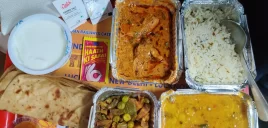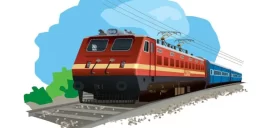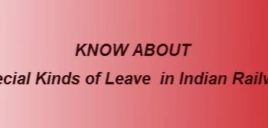The Mumbai region with 1.5kV DC traction has several models of EMUs, classified from WCU-1 through WCU-15 (and beyond??). Most models have DC traction motors with rheostatic control (resistance banks to vary the input power supply). DC EMUs are also used on the Lonavala-Pune section. Information on the precise differences among various older EMU classes is lacking.
EMUs for the 25kV AC sections have classifications WAU-1 through WAU-4 (and beyond??), as well as some MG units classified in the YAU series. Information on the precise differences among various older EMU classes is lacking.
ICF has been building 9-car AC-DC EMU rakes for Mumbai’s system. [10/02]. BHEL has also developed [7/00] some AC-DC EMUs for use in the Bombay area in both the 25kV AC and 1.5kV DC traction regions. The new AC-DC EMUs also have 3-phase induction motors and thyristor control. Recently [1/01] WR has signed a contract with Alstom to convert some of the existing 1.5kV DC EMUs to operate with both AC and DC traction power. The first such rakes were already in regular use in 2001-2002. These Alstom AC-DC EMUs have retrofitted pneumatic secondary suspension, a new feature in Indian locos or EMUs (although some WR DC EMUs also have retrofitted pneumatic suspension). Most of the converted rakes are ICF-built. AC-DC rakes are now [2011] in widespread use, including for the Lonavala-Pune section.
AC-DC EMUs built by TRAXX (later acquired by Alstom) and coach bodies built by ICF have 3xx series numbers, while the Alstom-retrofitted or ICF-converted) have 9xx series numbers. EMUs from the two series cannot be coupled together because of differences in the electrical cable connections. All the AC-DC coaches have provision for regenerative braking. The 9xx series rakes fail over to electropneumatic braking directly if regenerative braking does not work, while the 3xx series rakes first fail over to dynamic (rheostatic) brakes first before failing over to the electropneumatic brakes. MRVC rakes (see below) fail over to electropneumatic brakes when regeneration is not possible.
Newer AC-DC EMUs built by ICF have some additional ergonomic features for passengers. Early prototypes had somewhat different seating configurations (2×2 and 3×2), but all production units have regular 3×3 seating. They are factory-fitted with pneumatic suspension. The rakes for these will have 12 cars, and the rated max. speed is 100km/h. Some of the prototypes were [1/03] being tested in the Chennai Beach – Tambaram section, with fuller trials later [11/03]. A full AC-DC EMU rake (the 9th) was being tested [12/04] in Mumbai and had three coaches with trial designs with varying seating arrangements. The windows are nearly one and a half times the normal size. There are roof-mounted blowers for forced ventilation. Other ergonomic options being tried out are the positions of the grab poles, differences in the materials used for the floor, seats, and handles, and variations in the internal lighting.
Most EMU coaches for WR and CR, including the new AC-DC EMUs, are now manufactured by ICF, Perambur. ICF originally began building trailer coaches in 1962 and motor coaches in 1963. Initially, ICF classified these as ‘AC EMU B’ for motor coaches, ‘AC EMU C’ for trailer coaches, and ‘AC EMU D’ for trailer coachs with vendor compartments. There were also a variant trailer coach class ‘AC EMU A’ but this was merged with the ‘D’ class later. The newer Calcutta Metro coaches use traction equipment that is similar to that used in the AC-DC EMUs and are also manufactured by ICF. Jessop & Co. build AC EMUs with traction equipment from Bharat Heavy Electricals (BHEL). A few Jessop-built 9-car EMU rakes are now [9/04] in use on the regauged Chennai Egmore – Tambaram section. The coaches of the chopper rakes (see above) are also by ICF (were some by Jessop?). Bharat Earth Movers (BEML) also used to manufacture some EMUs. The BEML coaches have a lower height as they comply with the old IRS standards (like the old ICF coaches), older bogies (although many of the surviving ones have been retrofitted with Flexicoil bogies), and a tapered body profile at each end.
Some variations of the standard EMUs exist in the Mumbai area, including some stainless steel rakes (one ordered by MRVC / WR for field trials [2004]). The stainless steel shells were developed to avoid the problem of corrosion in the coastal climate of Mumbai. Known as the ‘Tanaka’ design, these shells designed and developed by ICF have a straight sidewall, a simplified design of the sole bar to eliminate places prone to corrosion and to make it easier to inspect and paint. The steel used is a ferritic stainless steel (AISI 409M) in the sole bar, body pillar components, and in the side wall up to a height of 600mm. The trough floor uses an austenitic stainless steel (AISI 301). Apart from the corrosion-resistance features, these EMU coaches also sport somewhat larger windows than the normal EMU coaches. There are other one-off experiments such as a stainless-steel driving trailer at Mahalaxmi that can be coupled with 3xx series EMU rakes. A Millennium Rake was introduced on Oct. 17, 2005, with enhancements such as forced ventilation with 32 fans instead of the normal 24, and audio-visual indications in the coaches of the current location, next station, platform direction, etc. (using GPS technology).
[2009] Titagarh Wagons and Jessop have started production of newer models of EMU coaches with stainless steel bodies.
The regular BG EMUs in operation in several suburban areas are somewhat wider (12′) than usual (WAG-5 is 10’8″, by comparison). Hence they cannot be used in many places where the clearances are not sufficient. The coach weights range from 118t to 130t. Bombardier and other companies are involved in a proposal [4/03] to manufacture some lighter weight stainless steel coaches (112t or less).
MRVC Rakes
New rakes are being inducted for Mumbai’s suburban network to replace the old rakes as well as to add more capacity. These rakes are being purchased under the Mumbai Urban transport project (MUTP). Mumbai Railway Vikas Corporation Limited (MRVC) is the executing agency, hence these are known as ‘MRVC rakes’. The first such rake was turned out in July 2007. These rakes have some new features like forced ventilation, better lighting, smoother ride quality, LED displays and announcements inside coaches to indicate the next station, stainless steel interiors (although the shells are not stainless steel), and better acceleration and braking. There is a plan to purchase the equivalent of 174 9-coach rakes in phase 1 of MUTP, manufactured in 12-coach and 9-coach formations. As more than 100 twelve coach rakes have been manufactured [2/11], the actual number of rakes is likely to be in the range of 130-135. The rakes are manufactured at ICF, Perambur. They have propulsion equipment supplied by Siemens. MRVC rakes use IGBT technology. The brake systems include electropneumatic and regenerative braking; the rakes fail over to EP brakes when regeneration is not possible. A few MRVC coaches have been fitted with conical springs in their primary suspension and are cleared to run at 105km/h. The early MRVC rakes suffered from large scale bearing failures in traction motors, which led to delays as the rakes were left stranded on line. Siemens rectified the defect under warranty.
ये भी पढ़े – योगासन का इतिहास तथा योग से होने वाले फायदे
MEMUs
The recent development of the Main-line EMU (MEMU), manufactured by ICF, was intended to address precisely this, to allow EMU operations in more areas. They have a width of 10’8&uot;. MEMUs run on 25kV AC power. MEMU driving motorcoaches seat 76 and the trailer coaches seat 108. They have a rated top speed of about 105km/h and are equipped with electro-pneumatic brakes. The trailer coaches weigh about 33.6 tonnes and the motor coaches weigh about 60 tonnes. Earlier versions of MEMUs had a top speed of 60km/h. RDSO improved on these by increasing the horsepower of the traction motors and providing a weak-field arrangement in them for higher speeds.
MEMUs were first produced in 1993 by ICF. MEMUs are now [12/00] in operation in many sections such as Kanpur-Shikohabad, Asansol-Jhajha, Jhajha-Kiul, Purulia-Barddhaman, Durg-Raipur-Bilaspur, Vijayawada-Kakinada, Kakinada-Vishakhapatnam, Arakkonam-Jolarpettai (classified as an ‘express’ in SR timetables!), Bankura-Midnapore, Sonarpur-Sealdah, Kazipet-Dornakal-Vijayawada, Purulia-Adra, Bilaspur-Nagpur, Kanpur-Shikohabad, Bilaspur-Raigarh, Bally-Bandel etc. There are extensive services in the New Delhi and Hyderabad-Secunderabad metro regions as well. WR has [2/11] extensive MEMU services from Ahmedabad to Virar, and some MEMU services to Panvel as well.
RDSO Trials with Weak Field arrangement During Dec. 13-21, 2003, RDSO carried out a series of trials with MEMU rakes carrying ‘Dense Crush Loads’ (‘DCL’) stopping at all stations on the Tundla-Kanpur section of NCR. These 4-car MEMUs were provided with a weak-field arrangement. It was seen that the use of the weak field allowed increased acceleration above 40km/h, saving time at 7% at a max. speed of 90km/h and 105 at 100km/h on the 228km stretch.
Source – IFRCA.org
This entry was posted in 2 Railway Employee, STUDY NEW, Railway Employee











